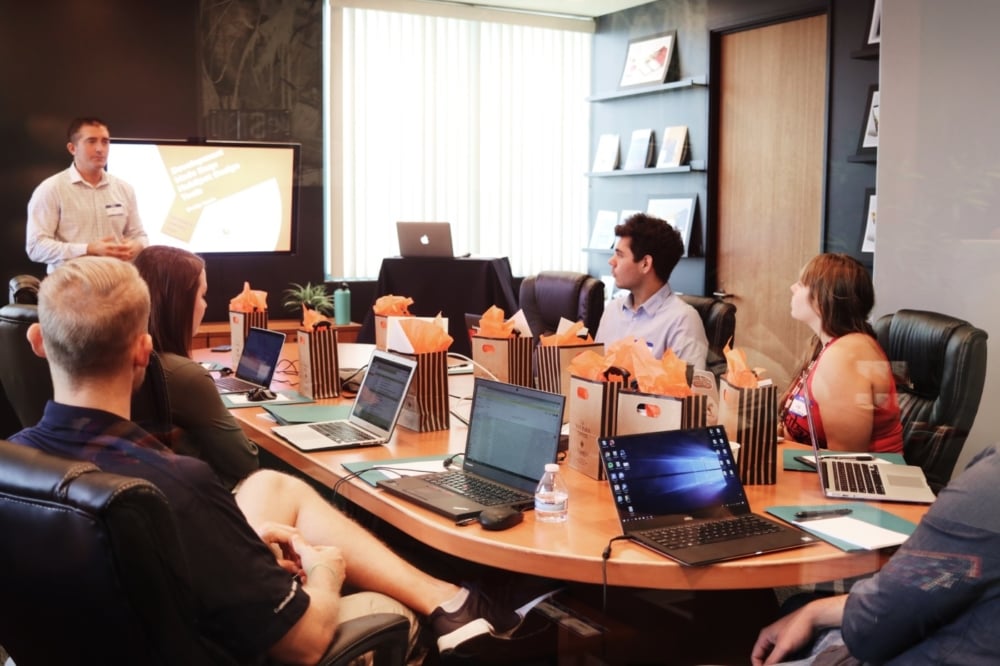The Discovery phase. That’s right—discovery—a core factor in the success of a website launch. You might say learning as much as possible about project requirements before you start seems like common sense. Yet, you may have noticed that some companies always seem to launch successful websites while others fail repeatedly.
Well, there’s an explanation for that…
The difference between success and failure doesn’t come from pure luck. More often than not, the difference is whether the company includes a discovery phase in its web development project.

What Is The Discovery Phase of a Website Development Project?
The name itself is pretty explanatory, but there are some nuances you should be familiar with. In a nutshell, the discovery phase is the first thing done during a web development project. During discovery, the developer and client work together to gather the information that is both relevant and required to build an exceptional user experience.
Some examples of this information include data such as the company’s user/buyer personas, pain points, and journey maps. Research and stakeholder interviews are typically done to help the web developer establish a solid foundation of details. The developer will use this research to base their work on during the project’s design phase.
3 Media Web contributes a portion of our success to the fact we begin every project with a discovery phase. This discovery phase allows us to identify needs and potential problems with our clients and their customers.
That’s why starting your next website development project with discovery is important.
Ready to start your next website development project? Reach out to the experts at 3 Media Web to build and launch your website with ease.
6 Benefits of Discovery Before Launching A Website
Discovery gives website developers numerous benefits that can make their projects more successful. Essentially, a discovery phase sets entire projects up for success.
Since the discovery process demands answers to difficult questions, it prepares your company in several ways.

1. Discover Allows Companies To Anticipate Potential Setbacks
You’ve heard the saying, “an ounce of prevention is worth a pound of cure,” right? Well, that adage is as true as ever when developing and launching a successful website.
If there’s one thing planning truly helps with, it’s forecasting any potential setbacks. Knowing what to expect gives you a much better chance of avoiding complications. Or, at the very least, be prepared to correct them quickly.
2. Know What Features Your Visitors Want
By closely examining the needs and anticipated usage patterns of a company’s customers, web developers are given foresight into what kinds of features, design, and flow the website needs.
After all, a major part of the goal is to create a website experience that works for the customer.
3. Create A Useful Structure That Helps People Navigate The Site
We just touched on how discovery can help with the customer journey and flow, which plays into a website’s navigation. Navigation is a major player in good website design. Plain and simple: site visitors need to be able to find what they’re looking for quickly and easily.
During discovery, web developers learn the user’s goals for visiting a company’s website and any business goals the company may have. Considering those two things, web developers hone in on what information and pages should be prioritized in the website’s navigation.
4. Discovery Leads To An Accurate Budget
It’s impossible to plan for the unknown. If you try to develop a website, piecing together what components and features as you go, there’s no way they will be able to provide their client with an accurate quote.
Once a web project has been started, it’s much more difficult to build in new, unplanned features than it is from the beginning. It inevitably slows the process down and takes up more resources and dollars.
Since discovery allows developers to see the full scope of a project before it starts, it allows them the opportunity to create an accurate timeline and budget.

5. Determine Whether You Need Outside Help
A lot goes into creating a website—from web design, content creation, web development, and regular updates once it’s launched. By doing a discovery phase, you will know what needs to be done and whether or not your company is prepared to do it in-house or if you need to work with an agency.
Beyond that, you can get a head start on creating content and even a digital marketing strategy once your site is launched. For example, if part of your new website includes a blog, you’ll need to have the plan to produce content regularly. If your staff doesn’t currently have a writer on it, it will give you time to hire one and have them start building out your content.
6. Get Your Product Launched As Quickly As Possible
“An hour of planning can save you hours of doing.” That holds especially true when planning out the timeline of a web development project.
It’s interesting… A lot of companies think they can save time by skipping the discovery phase of a website development project. The reality is the opposite is true.

Starting the Discovery Phase
A discovery process forces you to spend time and money before seeing any results. Many companies skip the discovery phase because they think it wastes resources.
In reality, discovery forms the basis for successful website development projects. Without them, you don’t have a proper map to help you reach your destination.
Some people try to avoid discovery because it can be a messy process. You have to ask a lot of questions and think about a lot of scenarios. The answers aren’t always obvious.
You might find times when you don’t know which person within your organization can answer a certain question.
By the end of the discovery process, you may have met with several teams, team leaders, and third-party consultants. It’s a lot of work, but it ultimately pays for itself.
What To Ask During Your Discovery Phase
As you head into discovery, you are looking to acquire certain data and information. You’ll need to ask the right questions to gather this information. When you start your discovery process, ask questions like:
- What are all of this project’s goals? Write down a list and be as inclusive as needed. Talk to stakeholders and write down their goals as well.
- Does another company already offer a similar product or service? Know your competition and look for ways they are leading in the industry and ways in which they are not.
- How can our organization take a fresh, innovative approach that will impress the site’s visitors? Use competitor research to inspire fresh ideas that will make visitors to your site happy and repeat visitors. Build upon what the competition is doing right and learn from their mistakes.
- What are the project’s milestones? Start mapping out the milestones and list all the work that needs to be done between them.
- Realistically, what deadlines should I set to reach milestones on time? Make deadlines for you and your team to stick to. Just be realistic about how long each milestone will take to complete.
- Does our organization have the right technological tools and personnel to complete the job? This is another big one in which being realistic is of the utmost importance. Designing and developing a website takes a specific set of skills—both technologically and organizationally.
Note all the people it will take to complete your project’s milestones. Begin assigning roles based on your employees’ roles and skills, or seek an outside agency or contractor to complete the project.

The specific questions that you ask will vary depending on what type of site you want to launch. A media site, for instance, will have different requirements than an e-commerce store.
If you’re unsure what questions you need to ask, you should talk to an experienced company that has worked on various web projects. When it comes to discovery, you can’t underestimate the value of experience.
Decide Whether You Have the Tools for Your Project
If you work for a large web development company with plenty of experienced designers, programmers, and content creators, then you may have all of the tools you need for your project’s discovery phase.
Most companies, however, quickly learn that they don’t have the expertise to conduct the discovery process well.
Just because your content creator has written successful blog posts and landing pages in the past doesn’t necessarily mean they know how to start a project from the beginning.
The beginning of the project, after all, requires extensive brainstorming, the shaping of ideas, and creative concepts that fit together in a way that will keep visitors on the site.
You may also discover that you want to add content like infographics, videos, and podcasts. If you don’t have the right people and equipment, then you might not even know what questions you need to ask during the discovery phase.
Consultants with experience working with various companies can give you the direction you need to succeed. When talking to a third-party company, you may discuss topics like:
- Building an adequate information architecture
- Revising parts of your site that don’t work well
- Establishing project deadlines and requirements
- Developing wireframes that will make the creation process easier for designers and content creators
You’ll also have an opportunity to discuss budgetary constraints, access the tools you need to build your site, and whether you would benefit from custom applications.
A Discovery Phase Is Worth the Effort
Right now, you may feel overwhelmed by the thought of starting your next project’s discovery phase.
In return, though, you get to establish a clear plan for your project. You’ll avoid unexpected pitfalls that could cost your business money and time.
Most people find that discovery also gives them peace of mind. Devoting yourself to the discovery process means you’ll experience less stress over the next several weeks or months.
Of course, you can always get help from professionals who understand the needs of diverse web projects. Hiring a consultant will save money and time by avoiding catastrophes as you plan to roll out your new project.
Contact 3 Media Web today to get more information about your options. With the right support, you can complete your discovery phase and start reaching milestones to finish your web project.

